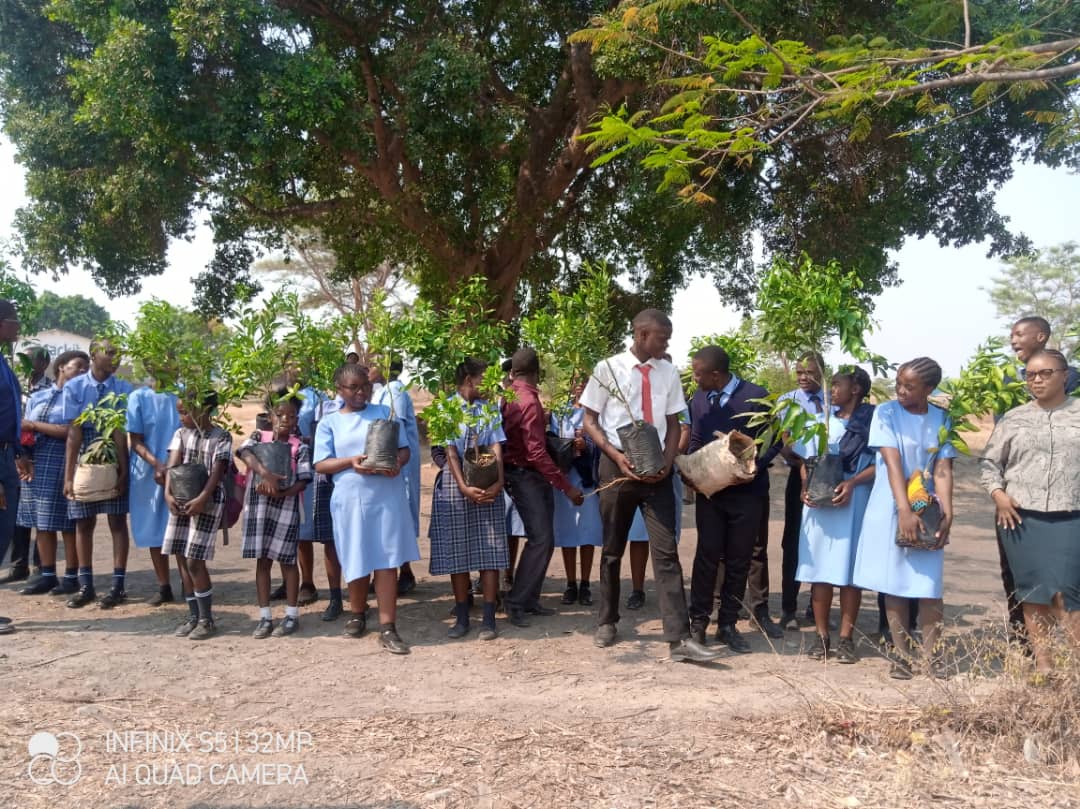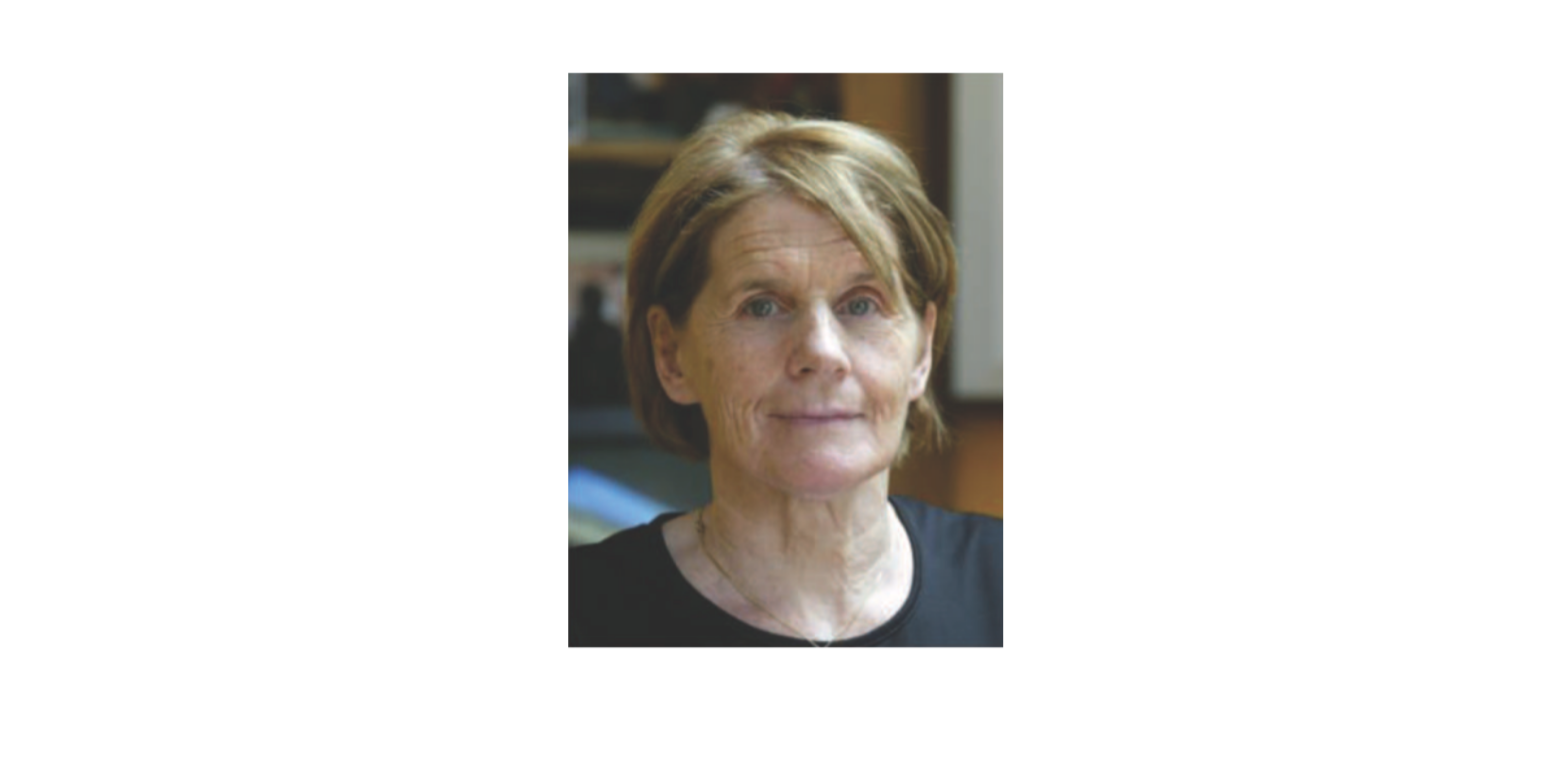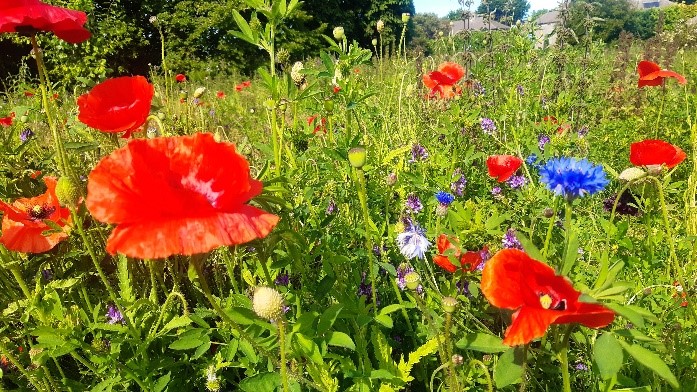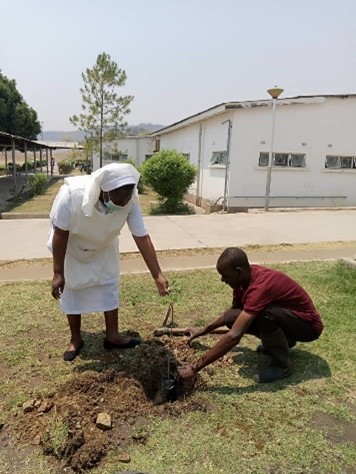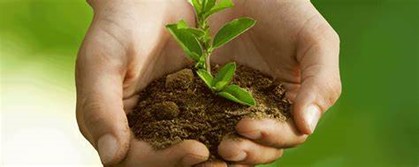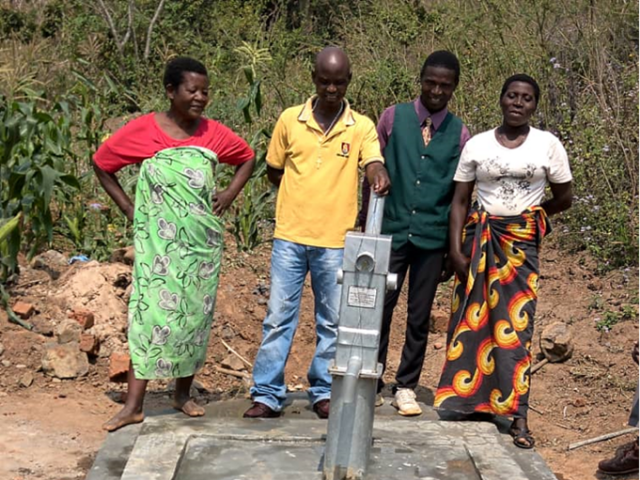
 This Sunday (October 17th) is International Day for the Eradication of Poverty. Our Sisters work in service of the poor across the globe and we spoke to Sr Mairéad Ní Chuirc about her work in Malawi. Sr Mairéad is based in Konzalendo, about a two-hour drive from the city of Blantyre, in an area full of steep hills and valleys. She arrived in May 2021. There are high levels of poverty in Konzalendo, and the local community rely on the corn and crops that they grow, but unfortunately their farms can be detrimentally affected by soil erosion.
This Sunday (October 17th) is International Day for the Eradication of Poverty. Our Sisters work in service of the poor across the globe and we spoke to Sr Mairéad Ní Chuirc about her work in Malawi. Sr Mairéad is based in Konzalendo, about a two-hour drive from the city of Blantyre, in an area full of steep hills and valleys. She arrived in May 2021. There are high levels of poverty in Konzalendo, and the local community rely on the corn and crops that they grow, but unfortunately their farms can be detrimentally affected by soil erosion.
Water projects
Many local people lack access to clean running water. A recent study of the area found that 50% of people were not within a reasonable distance from a well, having to rely instead on streams. The task of drawing water from a stream typically falls to women and girls. After school, girls are sent to collect water while boys play football. “You see an awful lot of inequality in that sense”, says Sr Mairéad.
Recently, while the Sisters delivered a bicycle ambulance project, local people told them that 300 people had no access to running water and that they wanted help to draw a well. The Sisters looked at possible locations and contacted the local Water Board, a branch of the local government. Much of what the Sisters do is a collaborative process of working closely with local people and with state agencies.
Education
Education is crucial in the eradication of poverty but students in Konzalendo face many obstacles to learning. In the local school, most students sit on the floor due to a scarcity of desks and chairs. The exception are Standard 8 students, who are in their final year of primary school. Prior to moving to Malawi, Sr Mairead was given a donation to fund the hire of a carpenter and welder to repair 50 broken desks. She is hoping for additional funding to buy more desks. The cost of uniforms is another significant obstacle for schoolchildren, particularly girls. The Sisters recently helped a student by making her a uniform, ensuring that she can attend school.
Household tasks
Collecting water, chopping down trees for wood, and cooking take up a lot of time for local families. Typically, women and girls collect wood five days a week to ensure they have enough fuel to cook on three stones in the open air. The Sisters are passionate about the environment and are eager to both reduce deforestation and reduce the time women and girls spend cutting trees and cooking. They have worked with North Malawian charity RippleAfrica.org who have provided the ‘Changu Changu Moto (Fast Fast Fire)’. A fuel-efficient cooking stove, the plans are available to download online and can be simply made with local bricks, mud and sand. Over 47,000 stoves have been built to-date across Malawi. In Sr Mairéad’s local community, almost 80 women have expressed interest in building the stove. The impact of the stove can’t be underestimated. Not only does it save cooking time, as more than one pot can be used at a time, it also means tree-cutting visits are reduced to just two days a week as the stoves use less wood. The Sisters are hoping to apply for more funding for this project.
Impact of the Pandemic
The COVID-19 pandemic also complicates life for those living in poverty in Malawi. There is a lack of widespread testing and there are unknown levels of covid in the community. The national vaccine programme has visited the area but widespread fears about the virus has contributed to a low uptake. Masks orders have been issued in cities and larger urban areas, but they have not been widely adopted in the countryside, other than when visiting church or the local government clinic.
How Best to Eradicate Poverty?
There is certainly not an easy answer to this question, the people need so much. A huge priority is securing accesses to water – clean water for drinking, sanitation and for growing crops. This would ensure more access to food for families, many of whom barely have enough.
There is truly a huge need for poverty reduction – the income of the majority of people is below the poverty line. Everything is connected. The availability of water and a reduction in poverty might, hopefully, lead in turn then to children staying in school longer, getting a better education and reduction in early marriage (Unicef data 2020 on Malawi notes that 42% of girls marry before 18, 9% before 15).
The Sisters are embedded in the community with their efforts to eradicate poverty, with stories like Sr Mairead’s bringing this to life.

A newly installed water pump
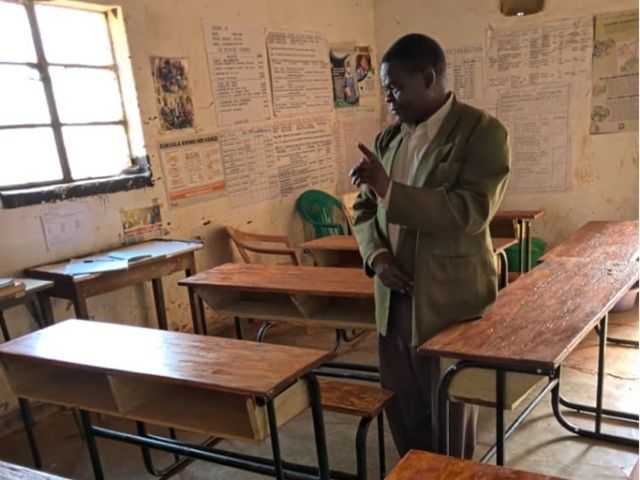
The local school in Konzalendo
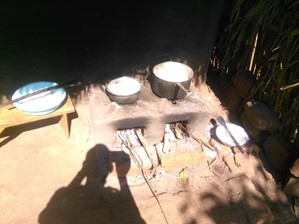
The ‘Changu Changu Moto (Fast Fast Fire)’ stoves in action


